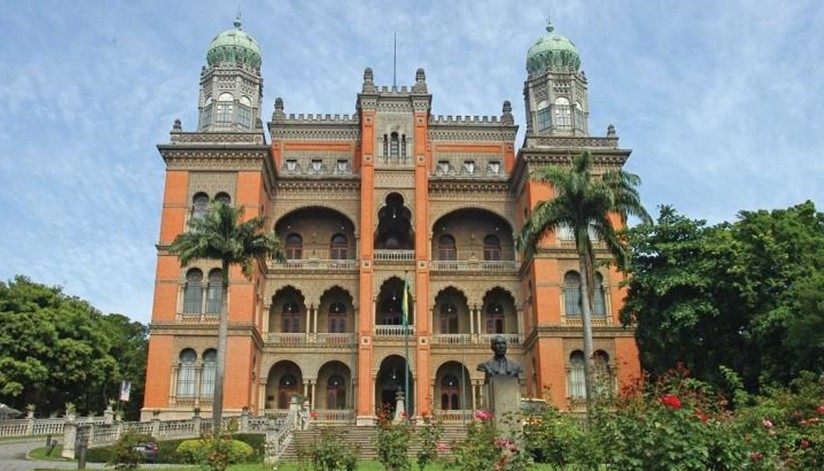The Fundação Oswaldo Cruz (Fiocruz) celebrates 120 years of foundation on May 25, 2020. Linked to Brazil’s Ministry of Health (MS), it is one of the most outstanding health science and technology institutions in Latin America, internationally recognized for its excellence in Research and Development.
The Latin American and Caribbean Center on Health Sciences Information of the Pan American Health Organization/World Health Organization (BIREME/PAHO/WHO) recognizes its longstanding historical relationship of technical cooperation with the Foundation, which has given rise to numerous events, projects and products in information and knowledge management, with several of its institutes.
More recently, in December 2018, Fiocruz had a prominent participation in the 10th Regional Congress on Health Sciences Information (CRICS10), and in the 7th Regional Coordination Meeting of the VHL (VHL7), characterized by support in carrying out the events and the participation of several of its professionals and researchers. The continuous presence of Foundation representatives at different institutional and scientific and technical information events coordinated by BIREME with its supporting networks is also highlighted and recognized by Diego González, director of BIREME
The Brazilian Registry of Clinical Trials (ReBEC), an open access virtual platform for recording studies carried out on human beings by Brazilian researchers, launched in 2010, is worth mentioning. ReBEC is a joint project of the Department of Science and Technology of the Ministry of Health, PAHO/WHO Brazil, BIREME and the Institute of Communication and Scientific and Technological Information of Fundação Oswaldo Cruz (ICICT/Fiocruz). With ICICT/Fiocruz, BIREME cooperated to create ProQualis in 2009, aimed at producing and disseminating information and technology on quality and patient safety, which is supported by the Ministry of Health.
The Vice-Presidency of Education, Information and Communication of Fiocruz represents and coordinates the Brazil node of the PAHO/WHO Virtual Campus for Public Health (VCPH) and shares, within the scope of the VCPH and the Virtual Health Library (VHL) , its collection of Open Educational Resources produced by the VCPH-Brasil Network, composed of 21 institutes from Fiocruz and institutions from the UNA-SUS Network. Moreover, Fiocruz is a member of the EVIPNet Brasil Advisory Council and the Brazilian Academic Consortium for Integrative Health; Fiocruz Publisher participates in the SciELO Books project and was a member of the Executive Core of the RIPSA VHL.
The Foundation coordinates and supports 16 Virtual Health Libraries (VHL) in Brazil, in addition to supporting the VHL network in the countries of the Region and the ePORTUGUESe Network, as well as the development of projects, products, services and scientific and technical information events. Fiocruz is a member of the VHL Brazil Executive Committee.
Fiocruz is responsible for publishing books, through Fiocruz Publisher, and countless scientific and technical materials such as magazines (institutional publications) and bulletins. The Foundation publishes seven nationally and internationally renowned scientific journals: (1) Cadernos de Saúde Pública; (2) História, Saúde, Manguinhos; (3) Memórias do Instituto Oswaldo Cruz (turns 111 in 2020); (4) Revista Eletrônica de Comunicação, Informação & Inovação em Saúde; (5) Revista Fitos; (6) Trabalho, Educação e Saúde; and (7) Vigilância Sanitária em Debate: Sociedade, Ciência e Tecnologia. Pioneeringly, it promotes open science practices by creating open data repositories, encouraging the publication of preprints and promoting open access to knowledge.
Considering their technical excellence, five Fiocruz institutions were designated PAHO/WHO Collaborating Centers: (1) World Health Organization Collaborating Center (WHO CC) for Leptospirosis, Laboratório de Referência Nacional em Leptospirose do Instituto Oswaldo Cruz; (2) WHO CC on Environmental and Public Health, Vice-Presidência de Ambiente, Atenção e Promoção da Saúde; (3) WHO CC for Pharmaceutical Policies. Departamento de Política de Medicamentos e Assistência Farmacêutica da Escola Nacional de Saúde Pública; (4) WHO CC for Global Health and South-South Collaboration, Centro de Relações Internacionais em Saúde; and (5) WHO CC for Education of Health Technicians, Escola Politécnica de Saúde Pública Joaquim Venâncio.
In the current Covid-19 pandemic, the Laboratory of Respiratory and Measles Viruses of Instituto Oswaldo Cruz was formalized as a reference for the disease, together with the US Centers for Disease Control and Prevention (CDC). Fiocruz also responds to Brazil’s Ministry of Health’s request to support the diagnosis of the disease, implementing Covid-19 Diagnostic Support Units, which will allow it to meet the demand for tests in the country. In addition, numerous researchers at the Foundation are studying the various aspects of the Sars-CoV-2 virus and the disease it causes.
The president of Fiocruz is Dr. Nísia Trindade Lima, PhD in sociology, the first woman to hold this position in 120 years. Nísia, who joined the Foundation as Director and Administrator of Casa de Oswaldo Cruz in 1991, provides a look at the trajectory of the centenary Foundation in a recent interview with Ciência Hoje magazine. “May my position in the presidency not only serve as an example, but as an engine to reduce this inequity”, says Nísia, referring to Covid-19’s most evident exposure of social and health inequities in Brazil. Besides scientific and technological development in combating the pandemic, visions such as that of the president of Fiocruz are those that will allow us to emerge from the crisis as a healthier, more just and equitable society.
